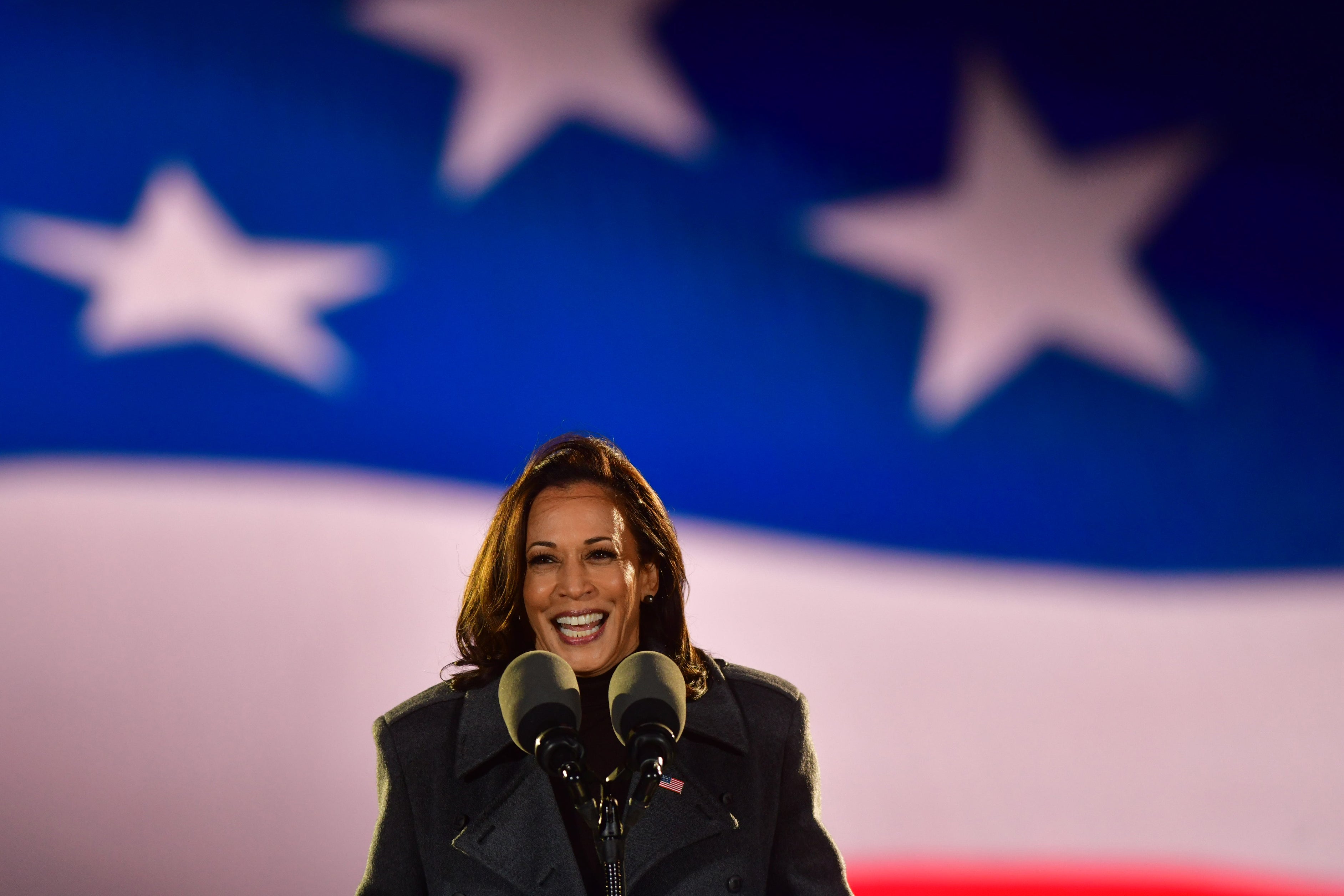As a Black woman, am I happy to see Kamala Harris become vice president? It’s complicated
In this historic moment, I will think of my family: the ancestors who would be so happy to see a Black woman in this position; and the ones incarcerated in prisons in Alabama, victims of a justice system Harris worked within


With the recent call of Pennsylvania, it’s become clear that Biden has won. He will become the 46th president of the United States.
And that, of course, means that Senator Kamala Harris will become our next vice president. When she does, she’ll not only be the first woman VP, but the first Black or Asian person of any gender to be second-in-command.
This is a momentous victory for representational politics, and a moment of pride for many people everywhere — Black people, Jamaican people, Indian people, Tamil people, and more. Harris’s identities embody several diasporas, making her the most diverse vice president this country (and most “Western” countries, for that matter) has ever seen.
As a Black woman wholly disillusioned with the United States, I struggle to understand what Harris’s new position means for me. I grew up in a military family, and in my teenage years, would have not been able to contain my excitement about having someone who looked like me, ate like me, loved and laughed with people just like, in the White House. I would have felt like I did when President Barack Obama was elected: positive that it was the dawn of a new era, one where Harris’s marginalized identity and political party affiliation meant equality and justice would rule behind those Oval Office doors.
But now that I’m older, my ideas and knowledge have shifted greatly. I know how harmful the Democratic Party can be to the most marginalized in our society, even when our officials share our identities. Kamala Harris may be a woman, but she has previously refused to allow incarcerated trans women access to gender-affirming healthcare. She may be Indian, but we do not yet know whether a Biden-Harris administration will hold Indian Prime Minister Narendra Modi — a demagogue leader similar in personality to Trump — accountable, or whether their policies will be as milquetoast as their views towards Israel’s treatment of the Palestinian people.
Likewise, Harris may be Caribbean, but she joins a Biden administration that refuses to take aggressive climate action — even though Harris co-sponsored the Green New Deal — which will threaten Caribbean countries with even more environmental disasters, like Hurricane Dorian that destroyed much of the Bahamas. Will Harris fight for climate action or will she give in to Biden’s plan of inaction?
And she may be Black, but Harris’s work as Attorney General undeniably led to the increased incarceration of Black people, contributing to a system that many — including myself — believe is a modern iteration of the chattel slavery our people endured in the Americas for centuries.
Kamala Harris may show my future daughter and other Black and brown girls that they can be anything, but do we want our children to sit at the helm of such destructive systems?
That is a question that each person will have to answer for themselves. Some people’s eyes will fill with tears, feeling as though her victory is only cause for celebration. Others may not feel like there’ll be any tangible change. Still other people may see her occupying this office as a deeper betrayal, precisely because of those marginalized identities she has.
As for me, when I think of Kamala Harris as the vice president of the United States, I will allow myself a small moment of remembrance for my ancestors, many of whom would stand in awe if they could see her now. I will feel a small twinge of happiness, for them. I will think of the fervent prayers for Kamala in her ancestral village of Thulasendrapuram in India, and how beautiful that collective outpouring of hope must sound.
But then, I will remember my ancestors again. I will remember how they slaved underneath the hot Alabama sun, picking cotton up until the 1950s, dreaming of a better life for themselves. I will remember how my ancestors had to eke out whatever standing they could amid the caste system of the slave and labor colonies of Jamaica and Trinidad. I will remember the family members I have now, who have been incarcerated on plantations called prisons in Alabama, forced to work for nothing. I will remember the world we live in now, a world on the brink of disaster because our government won’t save us from the climate emergency, or racial and economic injustice, or provide us with free healthcare.
And then I will remember that no matter how much my first instinct may be to celebrate Harris, she is still my enemy. I find that reality deeply saddening. I wish I could love her; I wish I could celebrate without reservation. I wish that she was someone I could be fully proud of.
I may not have pride in Harris, but I do have the same hope I carry for all the politicians that represent us: that maybe they will listen to our demands. That maybe, we will one day live in a world where they don’t have the power over whether we live or die, whether we are free or in chains.


Join our commenting forum
Join thought-provoking conversations, follow other Independent readers and see their replies